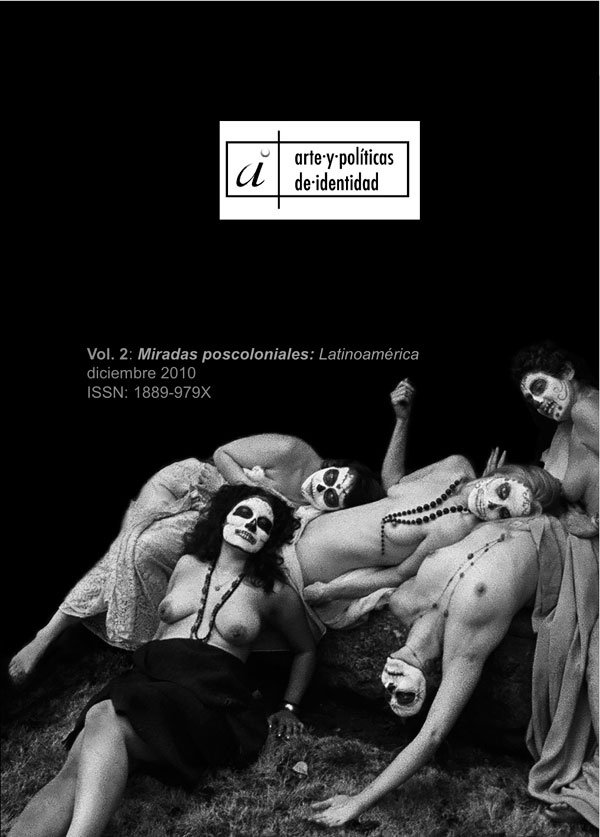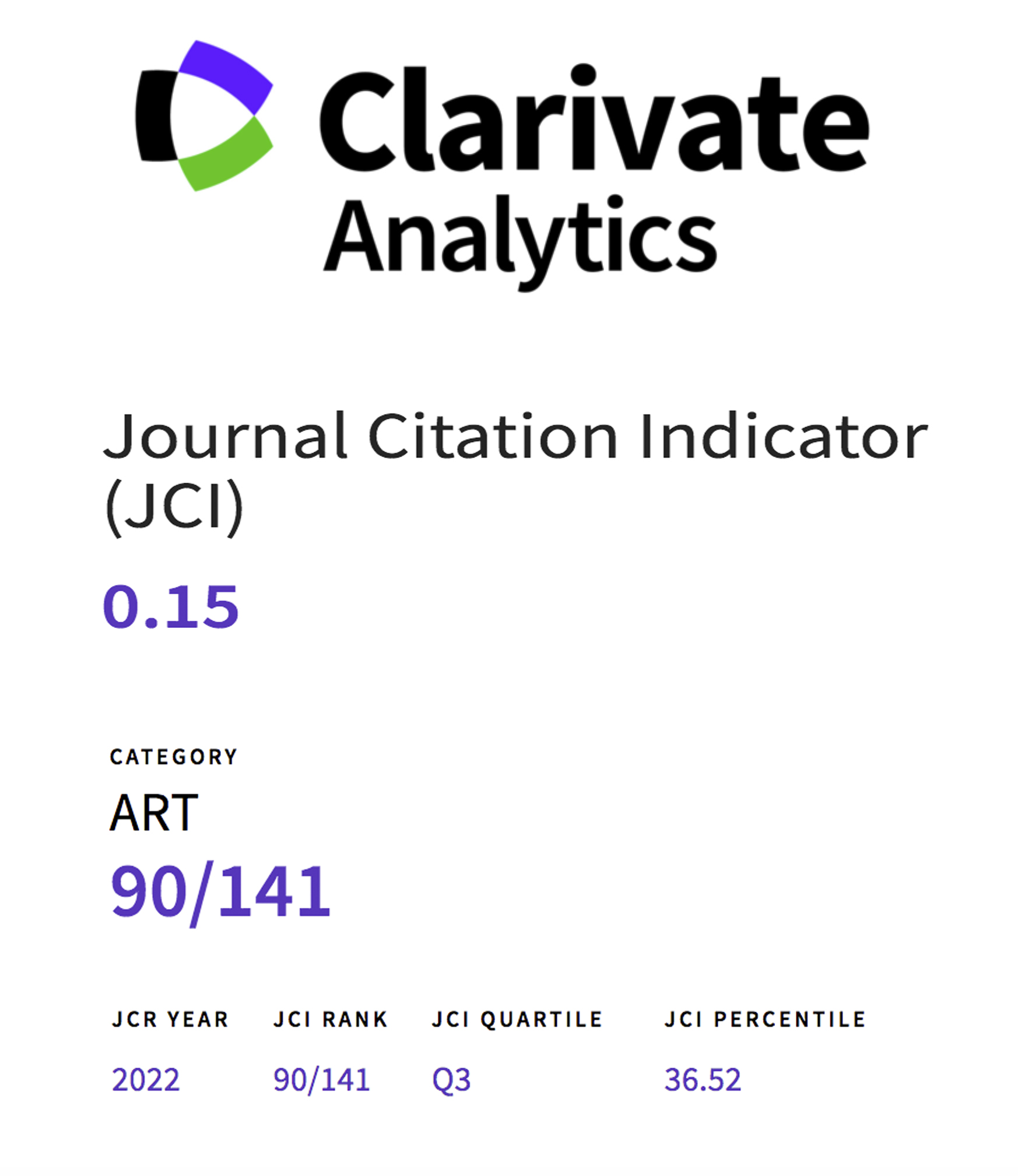Idiotas, locas, lenguaraces y tapadas. inappropriate appropriations and production of new knowledge
Abstract
The history of (artistic and political) representations is a history of invisibilization and deslegitimation as well. It is also part of the history of knowledge; of that knowledge (enough) representative: a sensitive knowledge where the body matters, though this does not mean that everybody matters the same. Walking among unexpected apparitions - idiots, insane women, talkative and foul - mouthed people, head covered women - and trying to make a cross reading of different works and historical events, this article aims to highlight the existence of some cultural and political practices able to re - organize the field of knowledge and representation; able to tell and take into account other kind of stories.Downloads
References
Althusser, L. (1975 [1969]). Aparatos Ideológicos del Estado (notas para una investigación). En Althusser, L. Escritos (pp.107-172). Barcelona: Laia.
Belausteguigoitia, M. (1995). Máscaras y posdatas: estrategias femeninas en la rebelión indígena de Chiapas. Debate Feminista, año 6, vol.12, 299-317.
Belausteguigoitia, M. (2006). Descarados y deslenguadas: el cuerpo y la lengua india en los umbrales de la nación. En Belausteguigoitia & Leñero (coords.), Fronteras y cruces: cartografías de escenarios culturales latinoamericanos (pp.63-83). México: UNAM.
Bhabha, H. (2002). El lugar de la Cultura. Buenos Aires: Manantiales.
Castellanos, R. (2000). Balún-Canan, México: Fondo de Cultura Económica.
CCRI (1996). “Cuarta declaración de la Selva Lacandona”. En Belausteguigoitia, M. y M. Leñero (coords.) (2006), Fronteras y cruces: Cartografías de escenarios culturales latinoamericanos (pp. 355-365). México: UNAM.
--------(1998). Quinta declaración de la Selva Lacandona. En Belausteguigoitia, M. y M. Leñero (coords.) (2006): Fronteras y cruces: Cartografías de escenarios culturales latinoamericanos (pp. 367-379). México: UNAM.
Comandancia General del EZLN (1993). Primera declaración de la Selva Lacandona. En Belausteguigoitia, M. y M. Leñero (coords.) (2006): Fronteras y cruces: Cartografías de escenarios culturales latinoamericanos (pp. 333-335). México: UNAM.
De Certeau, M. (1990). L’invention du quotidien. 1- Arts de faire, Paris: Gallimard.
--------(2004). Capítulo I. El Monasterio y la Plaza: Locuras en la multitud. En La Fábula mística, Siglos XVI-XVII (pp.45-63). México: Universidad Iberoamericana.De la Cruz, J.I. (1998 [1691]). Respuesta a Sor Filotea de la Cruz. México: Fontamara.
Egerer, C. (2001). Ambivalent Geographies. The Exotic as Domesticated Other. In Third Text. Critical Perspectives on contemporary art and culture (pp. 15-28). Londres: Kala Press.
Kreivyte, L. (2006). Art criticism in practice: Art theory recycled? Eurozine. Consultado el 15 de noviembre de 2010 en
Lamas, M. (2006). Ciudadanía, derechos y paridad. Contribución al panel internacional Ciudadanías y Derechos de las mujeres en América Latina, organizado por la Red Uruguaya de Autonomías y Cotidiano Mujer. Consultado el 4 de noviembre de 2010 en http://www.cotidianomujer.org.uy/ruda06p_mlamas.htm
Lozano, R. (2007). Violencias geográficas. La imagen de la mujer en las relaciones Oriente-Occidente. Extravío. Revista electrónica de literatura comparada, núm. 2, Universitat de València. Consultado el 20 de noviembre de 2010 en http://www.uv.es/extravio
Lugones, L. (1986). Yzur. En Lugunes, L. La Estatua de Sal (pp. 17-31). Madrid: Siruela.
Ludmer, J. (1985). Tretas del débil. En González, P. y E. Ortega (Eds.), La sartén por el mango (pp.1-6). Puerto Rico: Ediciones huracán.
Owens, C. (1992). Beyond Recognition. Representation, Power and Culture. Berkeley/ Los Angeles/ London: University of California Press.
Quiroga, H. (1993 [1909]). La gallina degollada. En Quiroga, H., Todos los Cuentos (pp.89-95). Madrid: CSIC.
---------(1993 [1921]). La lengua. En Quiroga, H., Todos los Cuentos (pp.471-472). Madrid: CSIC.
Ramos, J. (1996). Paradojas de la Letra. Caracas: exCultura.
Rancière, J. (2000). Le partage du sensible. Esthètique et politique. París: La fabrique-éditions.
---------------. (1996). El desacuerdo. Política y filosofía. Buenos Aires: Nueva Visión.
Said, E. (2003). Orientalismo. Barcelona: Debolsillo.
Spivak, G. Ch. (2003). A Critique of Postcolonial Reason. Towards a History of the Vanishing Present. Cambridge/London: Harvard University Press.
Yegenoglu, M. (1998). 2. Veiled fantasies: cultural and sexual difference in the discourse of Orientalism. In Yegenoglu, M., Colonial Fantasies: Towards a feminist reading of Orientalism (pp.39-67). Cambridge: Cambridge University Press.
Works published in this journal are subject to the following terms:
- The Service of Publications from the University of Murcia (publishing house) keeps the published works’ copyrights, and favors and allows the reuse of these works under the license indicated in point 2.
- Works are published in the journal’s online edition under the license Creative Commons Reconocimiento-NoComercial-SinObraDerivada 3.0 España(texto legal). They can be copied, used, disseminated, transmitted and publicly exhibited, as long as: i) the author and original source of publication are cited (journal, publishing house and work’s URL); ii) they are not used for commercial purposes; iii) the existence and specifications of this license are mentioned.
3. Conditions for auto-file. It is allowed and encouraged that authors share electronically their pre-print version (the pre-reviewed version) and /or post-print version (the reviewed and accepted version) of their Works before the publication, since it promotes its circulation and dissemination. RoMEO color: green.









